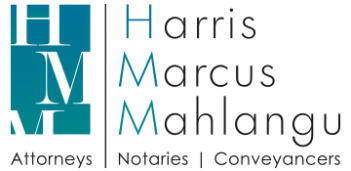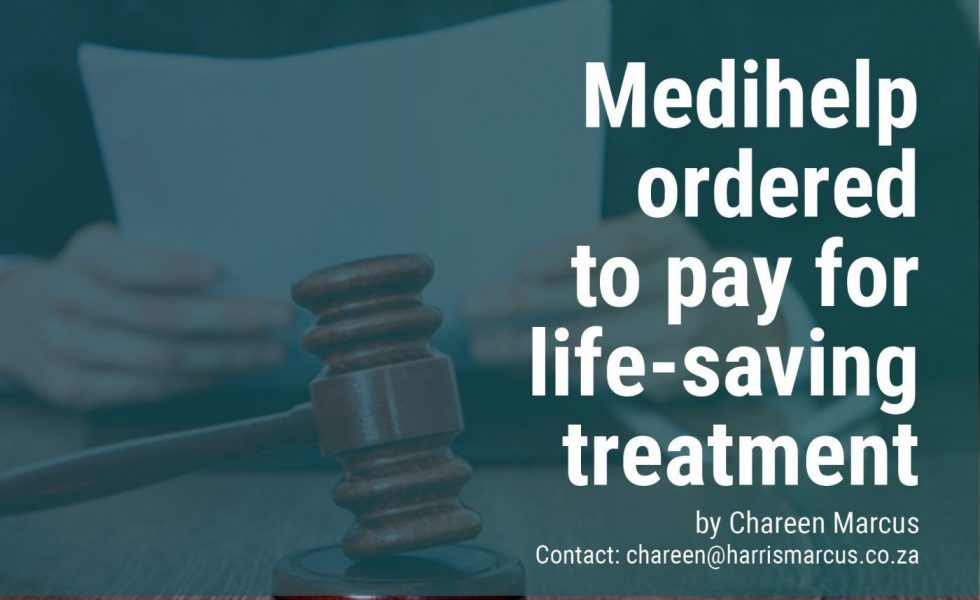The Pretoria High Court handed down a welcome judgement on 26 August 2022 regarding the funding of Elaprase by Medihelp Medical Scheme (“Medihelp”) for the treatment of three year old Zachary De Wet’s rare genetic condition called Hunters Syndrome MPS II (“MPS II”). Elaprase is the first and only registered treatment which became available in South Africa and has been shown to hinder or even halt the progressive degenerative consequences of MPS II.
Zachary’s mother (“the Applicant”) had on two previous occasions, requested authorisation from Medihelp to fund the use of Elaprase to treat Zachary’s condition – these requests were denied. Zachary’s condition had remained relatively stable since his diagnosis in 2021 but had started to significantly deteriorate from April 2022. By July 2022 following a subsequent examination by his treating medical practitioner, it was noted that there was significant damage to his heart valve and enlarging of his liver. The medical practitioner’s conclusion was that “ongoing failure to commence treatment will result in further decline of cardiac, respiratory and neurological symptoms decreasing his life expectancy”.
It was the severity of this report that was the catalyst which prompted the Applicant to bring this application on an urgent basis, assisted by the Rare Diseases of South Africa NPC.
APPROACHING THE COURT
The legislative regulatory framework of the Medical Schemes Act No. 131 of 1998, as amended (“the MSA”) provides that where a member has a dispute with a medical scheme, such member may lodge a complaint in terms of section 47 with the Council for Medical Schemes (“CMS”), which is required to review and investigate the complaint and issue a ruling in respect thereof. Section 48 of the MSA also provides for a right of appeal by any person who may be aggrieved by any decision relating to the settlement of a complaint by the CMS. Thus, it is not common practise for members to approach the courts in the first instance to adjudicate upon complaints.
Medihelp in fact raised this argument in its legal papers and contended that the Applicant should have first lodged a complaint with the CMS, being the designated statutory regulatory body, in terms of section 47 of the MSA, before approaching the court on an urgent basis.
The Applicant furnished evidence to the court that the average time period for the adjudication of complaints by the CMS is 486 days – more than a year. Given Zachary’s condition and the deterioration thereof, he did not have the luxury of time to wait for the CMS to rule on the complaint, which ruling may then have been appealed by Medihelp. The court agreed that the particular circumstances of this matter warranted the Applicant approaching the court on an urgent basis.
PRESCRIBED MINIMUM BENEFIT CONDITION (“PMB”)
1) First Argument advanced by Medihelp – MPS II is not a registered PMB
any benefit option offered by a medical scheme must pay for prescribed minimum benefit conditions in full
Medihelp initially refused to authorise payment for Elaprase on the basis that MPS II is not a registered PMB. Regulation 8 of the Regulations to the MSA contained in GNR1262 dated 20 October 1999 (“the MSA Regulations”) expressly states that – “any benefit option that is offered by a medical scheme must pay in full, without co-payment or the use of deductibles, the diagnosis, treatment and care costs of the prescribed minimum benefit conditions” (emphasis added).
Regulation 7 of the MSA prescribes that PMBs constitute those conditions that are listed in Annexure A to the MSA Regulations. The CMS had already ruled in another matter which came before it that MPS II is a PMB condition under category 901K in Annexure A as it constitutes a “Life-Threatening Congenital Abnormality of Carbohydrate, Lipid, Protein and Amino Acid Metabolism”. Accordingly, Medihelp did not succeed with this reason for refusing to authorise treatment.
2)Second Argument advanced by Medihelp – Elaprase is not the predominant treatment for MPS II in the public sector
- Annexure A to the MSA Regulations provides that the treatment for MPS II is “Medical Management”;
- The explanatory notes to Annexure A state that:
“Where the treatment component of a category in Annexure A is stated in general terms i.e. ‘medical management’ or ‘surgical management’, it should be interpreted as referring to prevailing hospital based medical or surgical diagnostic and treatment practice for the specified condition. Where significant differences exist between Public and Private sector practices, the interpretation of the Prescribed Minimum Benefits should follow the predominant Public Hospital practice, as outlined in the relevant provincial or national public hospital clinical protocols, where these exist. Where clinical protocols do not exist, disputes should be settled by consultation with provincial health authorities to ascertain prevailing practice” (emphasis added).
Medihelp argued that the prescribing of Elaprase was not a “prevailing predominant public hospital practice” and thus it was not obliged to authorise payment for this treatment. In order to refute this, the Applicant provided affidavits from the heads of the Paediatric Rare Diseases Unit at the Charlotte Maxeke Academic Hospital who confirmed that Elaprase was prescribed to patients with MPS II within their public healthcare facility. The Applicant also obtained an affidavit from Dr Klein of Sanofi Specialty Care, the pharmaceutical company that supplies Elaprase, who also confirmed that Elaprase is supplied to institutions within the public healthcare sector.
THE JUDGEMENT
The court ruled that MPS II is a PMB condition and accepted the Applicant’s evidence that the use of Elaprase is the only available and utilised treatment for MPS II in both the private and public sectors.
Accordingly, the court ordered Medihelp to authorise and pay for the treatment and care costs of all medical interventions required by Zachary and prescribed by his treating practitioners for MPS II as PMB level of care, which treatment includes the use of Elaprase.

